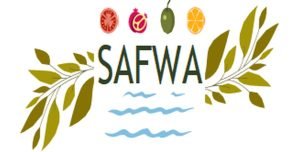SAFWA aims to release to the market an innovative solution combining a new competitive biopesticide to cultural trainings in order to reduce land and water pollution through new agricultural practices.

Preliminary information
SCIENTIFIC MANAGER: Michele Filippo Fontefrancesco
OTHER UNISG RESEARCHERS INVOLVED: Chiara Romano, Elena Fusar Poli
PARTNERSHIP: Centre de Biotechnologie de Sfax (CBS) (Tunisia), Citrus Technical Center (CTA) (Tunisia), MédiS (Tunisia), Institut National des Sciences Appliquées de Toulouse (TBI-INSAT) (France), University of Valencia (UVEG) (Spain), Institue of Agrifood Research and Technology (IRTA) (Spain), Saint Joseph University (USJ) (Libano), Università degli Studi di Scienze Gastronomiche (Italy), Biyans Biological Products R&D (Turkye), Julius Kühn-Institut (JKI) (Germany), Applied Insect Science GmbH (APIS) (UK)
DURATION OF THE PROJECT: 36 months (June 2023 – May 2026)
FUNDING INSTRUMENT: Call PRIMA Section 2 Multitopics 2022. Topic: Prevent and reduce land and water salinization and pollution due to agri-food activities
MAIN INTERDISCIPLINARY RESEARCH AREA IN UNISG: Perception and quality
SDGs:
![]()
![]()
![]()
![]()
![]()
![]()
Description
In all modern agricultural crops, the improvement of vegetable production of economic interest is based mainly on the control of pests and vectors of diseases. Pesticides application involves the use of chemicals with insecticidal, fungicidal, bactericidal properties. However, the expansion of their field application has created serious problems impacting human health and animals. In addition, excessive use of pesticides can leach into soils and water leading to land as well as groundwater pollution and wider biodiversity losses. Some of these products currently used to control pests are extremely toxic in inducing serious human diseases, such as cancer and immune and nervous system disorders. Current use of biocidal products in conventional and/or organic farming systems should be reconsidered taking in account their side effect on environment, non-target organisms, animal and human health. Such potential risk can be reduced through development, testing and demonstrating of approaches based on products safe for environment and life and human health.
The SAFWA project aims to release to the market an innovative solution combining a new competitive biopesticide to cultural trainings aiming to reduce land and water pollution through new agricultural practices. SAFWA specific challenges are to meet the requirement of the EU regulation regarding the registration of safe biopesticides and to provide an environment in which agriculture production contributes to reduce the pollution of the water and the land. The main goal of SAFWA is to market a new alternative intended to minimize the risk associated with the use of pesticides. SAFWA will build on the ongoing European project IPM-4-Citrus achievements both at technological and market assessment levels to drive new cultural practices to farmers in 4 pilot units experimental farms around the Mediterranean.
Web site
Updating
News from the project
Programme journée Prima 05 Mars
Publications
Fusar Poli, E.; Fontefrancesco, M.F. (2024). Trends in the implementation of biopesticides in the Euro-Mediterranean region : A narrative literary review. Sustainable Earth Reviews Reviews, S2024R/7:14. DOI : 10.1186/s42055-024-00085-8
Fusar Poli, E.; Fontefrancesco, M.F. (2024). Pesticide: A Contemporary Cultural Object. Encyclopedia, 4, 720-734. https://doi.org/10.3390/encycl
Fontefrancesco, M.F., Fusar Poli, E. (2024). Dipanare un paesaggio tossico Il caso studio del paesaggio d’acqua del Delta dell’Ebro. Dada Rivista di Antropologia post-globale, 2 (2024), 7-34. http://www.dadarivista.com/
Fusar Poli, E., Campos, J.M., Martínez Ferrer, M.T., Rahmouni, R., Rouis, S, Yurtkuran, Z., Fontefrancesco, M.F. (2024). The Difficult Decision of Using Biopesticides: A Comparative Case-Study Analysis Concerning the Adoption of Biopesticides in the Mediterranean Region. Agriculture 2025, 15, 640. https://doi.org/10.3390/

This project is part of the PRIMA programme supported by the European Union
